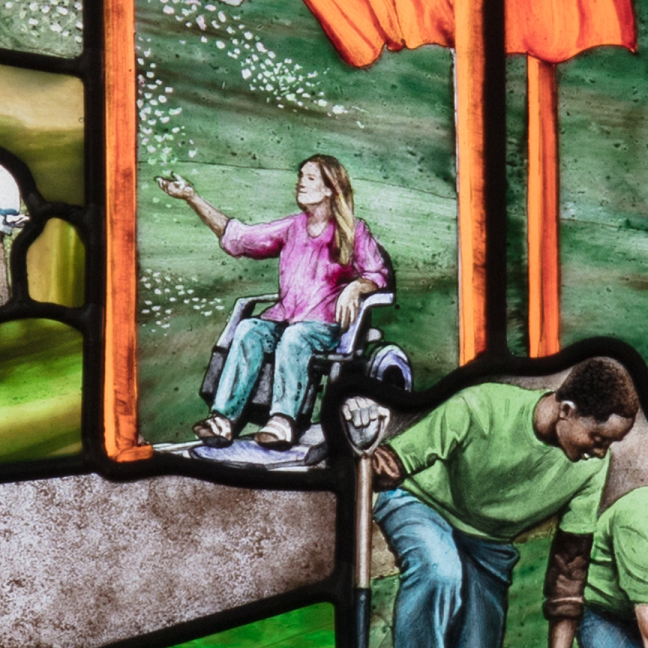
The word accessibility means "making information, activities, resources, [and] environments...usable for as many individuals as possible" (SeeWriteHear.com). Unfortunately, there are many instances throughout history where inaccessible infrastructure and poorly designed policies limited individuals with physical or mental disabilities. It wasn’t until 1973 that Congress passed the first U.S. law protecting individuals with accessibility needs. Since then, many countries have prioritized accessibility in planning and innovation, opening the world to millions.
From the famous Harriet Tubman to the innovative typewriter, the references in this scavenger hunt celebrate the incredible people, events, and inventions that make society more accessible to all.

Millions of animal species wander our earth today—some are like us with arms, legs, eyes, or hair. Other animals are vastly different with antennas, tentacles, scales, wings, or exoskeletons. Animals inhabited the Earth long before humans existed. Throughout the planet’'s extensive history, many species, such as dinosaurs, woolly mammoths, and saber-toothed tigers, have become extinct.
As we continue to share the planet with animals, researchers are making new discoveries about them every day. Use this scavenger hunt to make your own discoveries about the animals depicted in Roots of Knowledge.
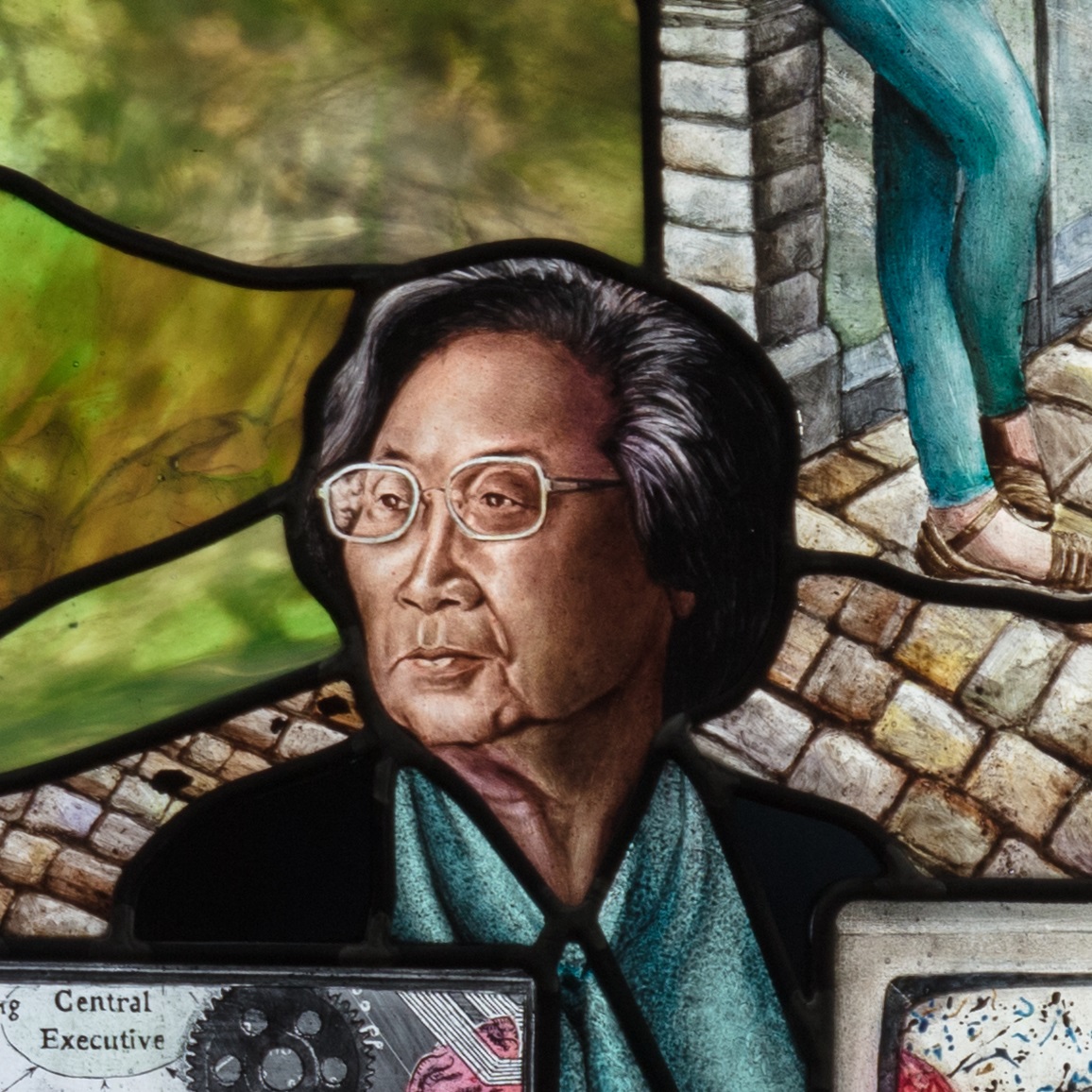
Each May, we celebrate Asian American and Pacific Islander Heritage Month to commemorate the first known Asian immigrant to the U.S., who arrived on May 7, 1843. Since then, millions have traveled to the U.S. from Asia and the Polynesian islands while seeking political freedom and economic opportunities. In 1977, the U.S. House of Representatives dedicated the first week of May to celebrate Asian and Pacific Islander (AAPI) immigrants and their cultures. In 1992, President George H. W. Bush extended the celebration to a full month.
Inspired by Asian American and Pacific Islander Heritage Month, this scavenger hunt celebrates Asian and Pacific Islander history and impact of AAPI immigrants.
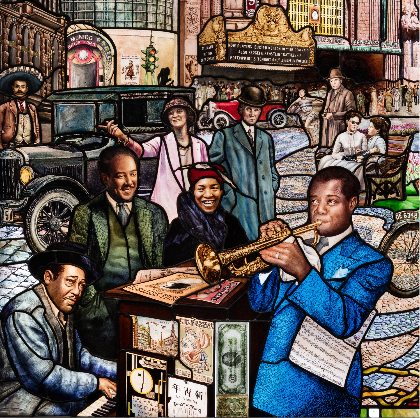
What began in the United States as Negro History Week in 1926 turned into a month-long celebration by 1970. Today, it is known as Black History Month and is celebrated in February. Black History Month is observed in several countries around the world in October, including Ireland, the Netherlands, and the United Kingdom.
In the years following its inception, Black History Month was met with enthusiasm and the creation of Black history clubs, resulting in an increased focus on Black history in education. However, there has also been concern that Black History Month limits the celebration of Black history to only one month, rather than incorporating Black history into the mainstream historical study. To combat this, Roots of Knowledge seeks to highlight Black history and provide tools for awareness and learning. This scavenger hunt draws attention to important figures and events in Black history, and—as always—we encourage you to celebrate Black history all year.
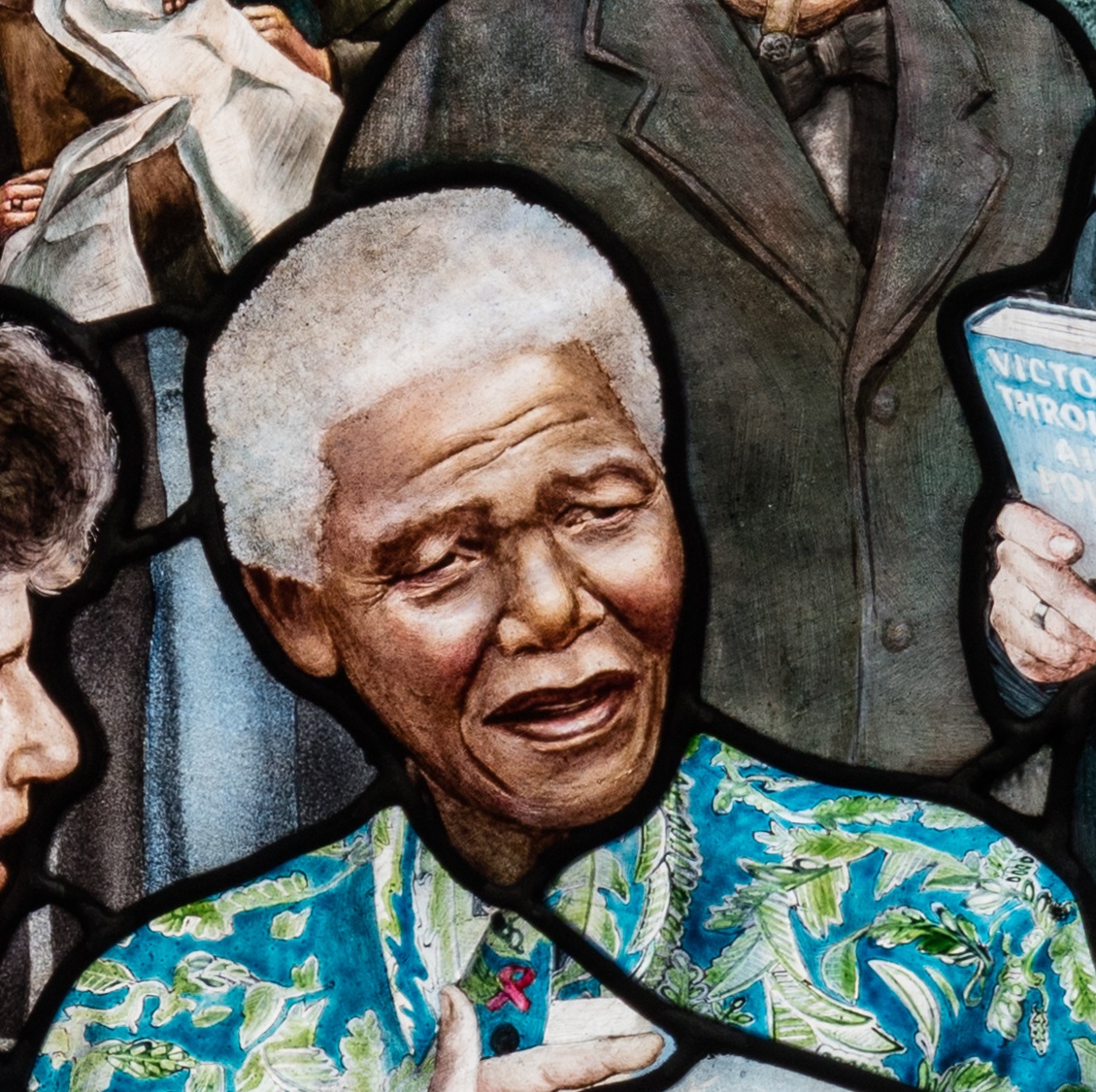
No matter where you live or where you come from, it is important to understand how society works. Civic service, as highlighted in this scavenger hunt, is all about creating a better world and inspiring others to understand and engage with important issues. With the diverse problems facing modern societies, we need educated and ethical citizens to help find solutions and make a positive impact.
One of the main themes of Roots of Knowledge is people changing the world for the better. To celebrate this theme in honor of Martin Luther King Jr. Day, this scavenger hunt highlights a few of the many people around the world who have shifted societies and made a positive impact.
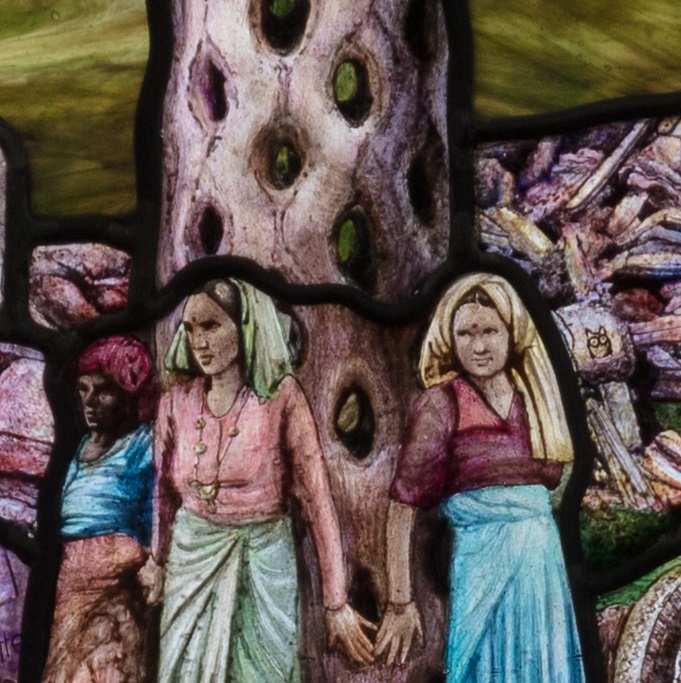
The history of our environment is a two-way relationship between the earth and humanity, including humankind’s effect on the earth. Some ways of thinking separate nature from humankind, but in many ways the story of the environment is the story of humanity—people have always lived with and because of their environment. Throughout history, many people have worked to protect and positively affect the environment.
This scavenger hunt explores some of the people who have impacted the environment, as well as prominent locations in the natural world. Some examples include the now rare Cedars of Lebanon in the Middle East, which grow as high as 130 feet, and George Washington Carver, who popularized the peanut plant in part to reduce the environmental harm of some agricultural practices.
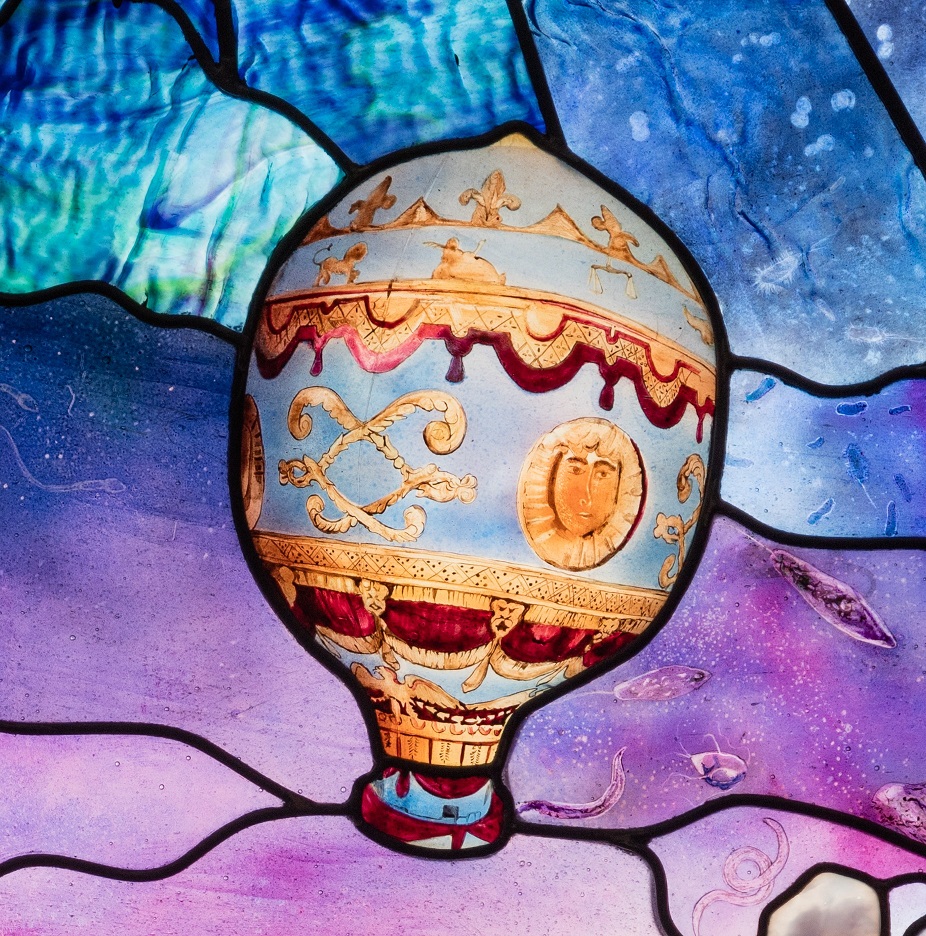
This scavenger hunt highlights a variety of larger images in the windows, including a wide range of people, societies, and historic innovations throughout the mural. It is designed for young children or those with only a short time in the Bingham Gallery.
Roots of Knowledge is made of over 40,000 pieces of glass and includes thousands of cultural and scientific references. Most people find themselves surprised by how much content can be found in the stained-glass windows. The mural covers a multitude of subjects, including religion, art, science, philosophy, and major historical events.
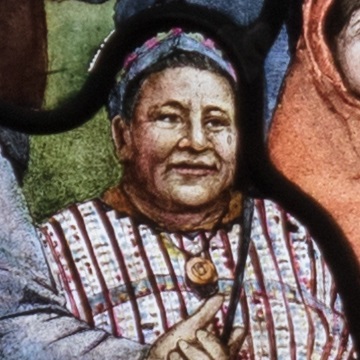
Hispanic Heritage Month—beginning as Hispanic Heritage Week in 1968 and expanding to a month-long celebration in 1988—is a commemoration of Hispanic Americans and their cultures. Beginning on September 15th and continuing through October 15th, Hispanic Heritage month includes the Independence Day celebrations of many Central and Southern American countries—including Costa Rica, El Salvador, Guatemala, Honduras, and Nicaragua on September 15th, Mexico on September 16th, Chile on September 18th, and Belize on September 21st.
This scavenger hunt was made to celebrate and showcase Hispanic history shown throughout Roots of Knowledge.
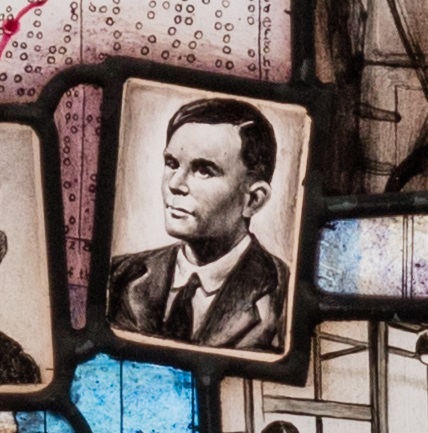
Much of the English terminology used to describe the LGBTQIA+ experience has only come into use in the past century. This lack of shared English vocabulary to talk and write about the LGBTQIA+ community, coupled with harmful stigmas, makes researching LGBTQIA+ history a challenge. Even so, many cultures and languages around the world have historically had terms for trans, queer, bisexual, and nonbinary individuals, such as two-spirit in some Native American cultures, fa'afafine and fa'afatama in Samoa, Hijra in India, and more.
This scavenger hunt highlights and expounds on people and events from history that have strong connections to the LGBTQIA+ community.
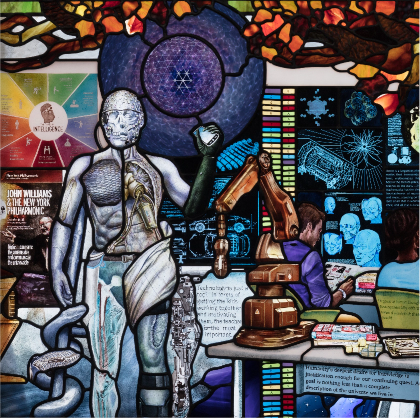
Medical history accounts for thousands of years of discoveries and innovations that have shaped the way we understand and treat the human body. From prehistoric remedies and surgical techniques to the development of modern medicine, the evolution of healthcare is full of remarkable breakthroughs. In the stained-glass mural, there are depictions of early medical practices, tools used by physicians in various cultures, medicinal plants, and moments that changed the course of medical science.
Using this scavenger hunt, discover how knowledge of anatomy, disease, and healing has advanced across different eras and regions, impacting the way we live today.
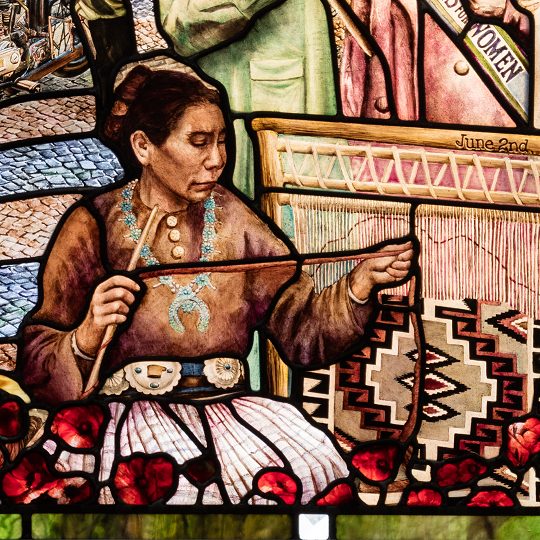
Long before settlers crossed the Atlantic, millions of people lived in the land that we now call North America. When Europeans came to the Americas, well over a thousand societies already occupied what is now the fifty U.S. states. Today, there are 574 Native American tribes in the U.S. Native peoples have lived with and learned from this land for thousands of years; their continued contributions shape the world in immeasurable ways.
This scavenger hunt recognizes the beautiful history of Native American peoples.
We stand on the ancestral homelands of Utah’s Native Nations.
Utah Valley University embraces our unique responsibility of stewardship to this crossroads region. We honor the historical and contemporary contributions of indigenous people to the academic fields we study and the community in which we live.
UVU respects sovereign relationships with state and federal governments and will continue to work in partnership with tribal nations to deliver community outreach, educational programming, and academic support to Utah’s Native Nations.

Philosophy is the study of life’s fundamental questions, such as "What is reality?" "What is morality?" and "What is my purpose?"
Queries like these have been discussed over thousands of years, encouraging critical thinking, open debate, and self-reflection. In this scavenger hunt, ideas of philosophy from various cultures, regions, and time periods are explored. Participants will engage with key concepts from ethics, metaphysics, political philosophy, and more, uncovering how these philosophical insights apply to life today.

At Roots of Knowledge, visitors of all ages are invited to experience the stained-glass windows. This scavenger hunt, specially designed for young children, features fewer objects to find, larger images to look at, and more engaging topics to learn about. This preschool scavenger hunt encourages children to learn about the world around them through observation, discussion, art, and literature.

The history of sports stretches back to ancient times, serving a variety of purposes across the earth’s many cultures and civilizations. Today, sports are often associated with personal growth, community pride, and entertainment. In the ancient world, sports could also be used for warfare, rituals, political expression, religious practices, and even punishment.
Throughout history, sports have taken many forms, including Neolithic Mongolian wrestling, Mesoamerican ballgames, ancient Madagascan bull riding, Pacific Island boat racing, Native American ball-and-stick games (which inspired modern lacrosse) , and the famous Olympic Games, which were first held in Olympia, Greece, in the eighth century BCE .
This scavenger hunt highlights the diverse spectrum of sporting traditions and achievements that have shaped human history.

Although we often think of technology as computers and other electronic devices, technology includes much more. Throughout human history, people have used tools to make life easier. Inventions such as hammers and grinding stones are examples of technology used by early human civilizations to make food, clothing, medicine, and shelter to survive.
This Roots of Knowledge scavenger hunt shares information about historical inventions that changed the way we live—many of which we still use today— including pottery, concrete, telephones, and toilets.
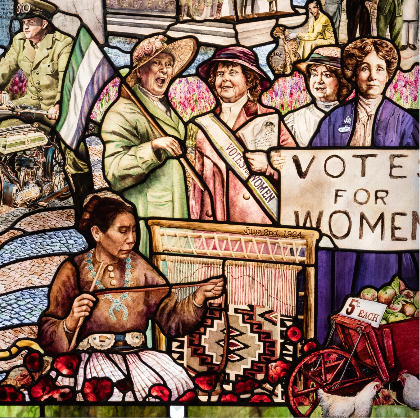
Women’s history is human history. Throughout recorded history, women’s contributions have been minimized in science, literature, math, art, medicine, government, and more. The National Women’s History Alliance (NWHA), an American non-profit organization that honors women’s history, asserts that Women’s History Month is meant to bring attention to the remarkable women who have changed the world and “re-write” them into history.
Women’s History Month is an annual event that highlights the contribution of women to history and society. The celebration began in the late 1970s as Women’s History Week in Sonoma County, California. It soon spread throughout the United States and into other countries throughout the world. Women’s History Month is celebrated in March to coincide with International Women’s Day March on March 8. By celebrating Women’s History Month, we honor those brave and valiant women who fought for generations to secure the vote for themselves and the women who would come after.